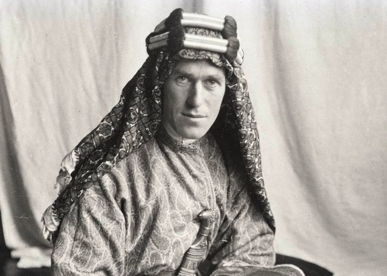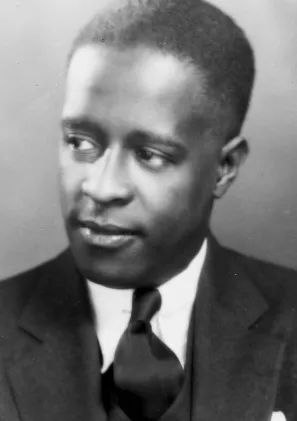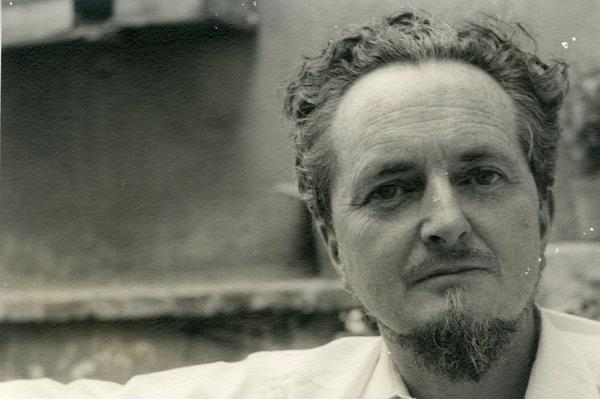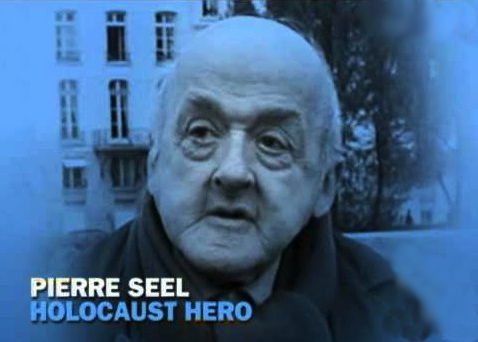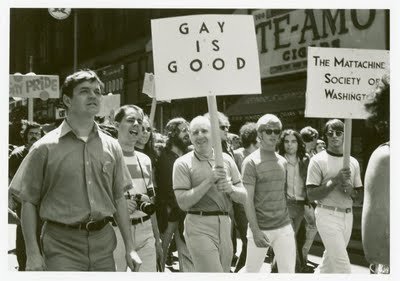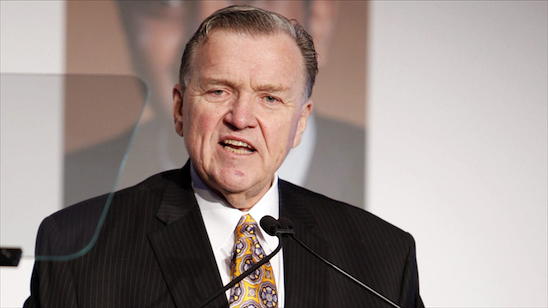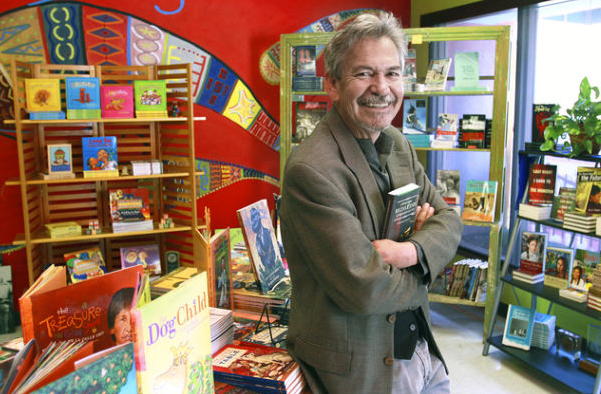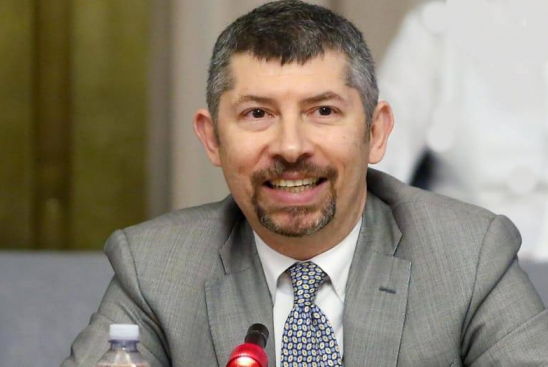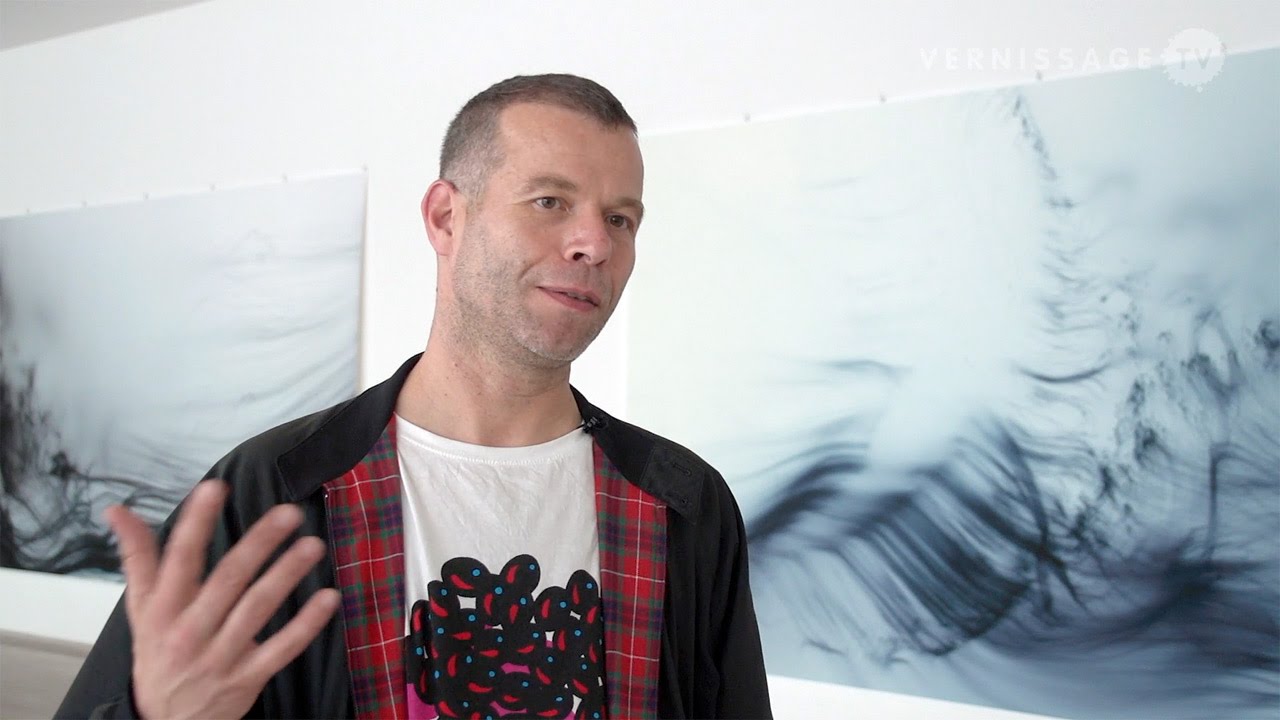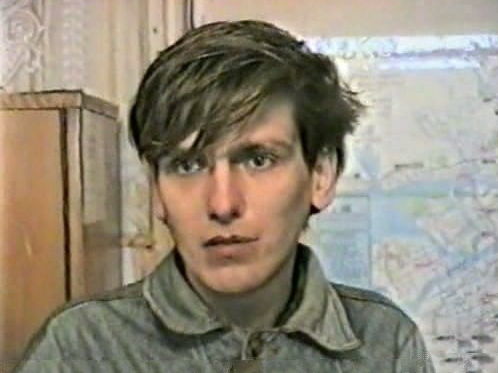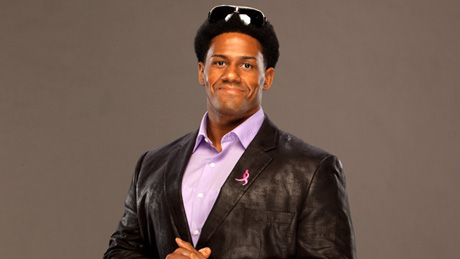|
presents THIS DAY IN GAY HISTORY based on: The White Crane Institute's 'Gay Wisdom', Gay Birthdays, Gay For Today, Famous GLBT, glbt-Gay Encylopedia, Today in Gay History, Wikipedia, and more …
Collected by Ted August 16 [{(o)}]|[{(o)}]|[{(o)}]|[{(o)}]| [{(o)}]|[{(o)}]1661 – Jacques Chausson was a French ex-customs manager and writer. He was arrested on August 16, 1661, and charged with attempted rape of a young nobleman, Octave des Valons. He was convicted of sodomy and sentenced to death. His tongue was cut out and he was burned at the stake (without being suffocated first, the more common and “merciful” practice).
1888 – (Thomas Edward) T.E. Lawrence (d.1935), or Lawrence of Arabia, is best known as the author of Seven Pillars of Wisdom (1935). Lawrence was the illegitimate child of Sir Thomas Chapman and Sarah Lawrence who, after eloping in Ireland, changed their name by deed poll in England. Lawrence himself would change his name to John Hume Ross, when he joined the Royal Air Force in 1922, and again to T. E. Shaw when he joined the Tank Corps a year later. His experiences as a recruit are the subject of The Mint, a prequel to Seven Pillars of Wisdom, published posthumously in 1955. Seven Pillars of Wisdom is a brilliant account of his role in the revolt of the Arabs during the latter half of World War I, a revolt instigated by the British in order to drive the Turks out of Syria and Palestine. Lawrence chose Emir Feisal to lead the campaign and masterminded the guerrilla tactics that would contain and cripple the Turkish garrisons, especially at Medina, by cutting railways and telegraphs in surprise raids. But Lawrence labored under a sense of duplicity, knowing that the British had no genuine interest in Arab independence and were simply using the Arabs in the war against Germany. Though he mourned the brutality into which the campaign gradually sank, the contrast is striking between Lawrence's tidy and effective raids on the Eastern Front and the appalling waste of "human ammunition" on the Western. Although homosexuality is the subject of only a tiny portion of this epic narrative, it plays a pivotal role in the psychological background. Chapter 80 tells how Lawrence was captured while on reconnaissance in Deraa and how he rejected the sexual advances of the Turkish Bey who held him. It then describes vividly the torture he received from the Bey's guards and, more obliquely, their brutal sodomizing of him. Lawrence, who maintained complete celibacy and hated even to be touched, never recovered from this trauma; he believed that he had been robbed of his "integrity" and his spirit had been broken, apparently forever. Lawrence largely hides from view a later and equally discouraging event, namely, news of the death of Salim Ahmed, the young man who was the "S.A." to whom the book is dedicated. Lawrence had met Ahmed while working on an archeological dig in Carchemish, Syria, several years before the war. At this time, Ahmed (or Dahoum as Lawrence called him) was only fourteen, but they established a close friendship. Seven Pillars opens with a cryptic dedicatory poem, which hints that it was for the sake of "S.A." that he worked and suffered for the cause of Arab independence. When Dahoum died of typhoid behind Turkish lines in September, 1918, the revolt had nearly reached its goal at Damascus. In Seven Pillars, and more explicitly in his correspondence, Lawrence suggests that his distaste for the entire exploit in its last triumphant days was owing largely to news of his friend's death. The authorized biography attempts to defend Lawrence against "charges" of homosexuality, and indeed anyone seeking proof of his orientation in sexual acts will find little evidence of any sexuality at all. But there is no doubt that Lawrence was able to form closer attachments to young men (such as Dahoum, R. A. M. Guy, and Jock Chambers) than to women. Meyers (Homosexuality and Literature) produces strong evidence from the letters that Lawrence was tormented by the knowledge that he had surrendered to the rapists at Deraa and had experienced a masochistic sexual pleasure. On May 13, 1935, he suffered severe injuries in a motorcycle accident and died six days later. David Lean's 1962 film, Lawrence of Arabia, and Terence Rattigan's play of the same year, Ross, have helped shape the myth that surrounds this complicated and enigmatic figure. But well before these dramatic portrayals, Lawrence served as a model for the neurotic hero--the "Truly Weak Man" who must continually prove himself by acts of heroism--in the works of the angry young gay men of the 1930s, W. H. Auden and Christopher Isherwood.
1893 – Dr. F. E. Daniel, editor of the Texas Medical Journal, presented a paper which advocated the castration of male and female sexual perverts, including homosexuals, to prevent them from reproducing and passing on these traits. He also recommended that those convicted of such offenses be stripped of all rights.
1902 – Wallace Thurman (d.1934) was an American novelist active during the Harlem Renaissance. He also wrote essays, worked as an editor, and was a publisher of short-lived newspapers and literary journals. He is best known for his novel The Blacker the Berry: A Novel of Negro Life (1929), which explores discrimination within the black community based on skin color, with lighter skin being more highly valued. Thurman was born in Salt Lake City. When Thurman was less than a month old, his father abandoned his wife and son. It was not until Wallace was 30 years old that he met his father. Between his mother's many marriages, Wallace and his mother lived in Salt Lake City with Emma Jackson, his maternal grandmother. Jackson ran a saloon from her home, selling alcohol without a license. In 1925 Thurman moved to Harlem. During the next decade, he worked as a ghostwriter, a publisher, and editor, as well as writing novels, plays, and articles. In 1926, he became the editor of The Messenger, a socialist journal addressed to blacks. There he was the first to publish the adult-themed stories of Langston Hughes. Thurman left the journal in October 1926 to become the editor of World Tomorrow, which was owned by whites. The following month, he collaborated in founding the literary magazine Fire!! Devoted to the Younger Negro Artists. During this time, Thurman's flat in a rooming house in Harlem, became the central meeting place of African-American literary avant-garde and visual artists. Thurman mockingly called the room "Niggerati Manor." He had painted the walls red and black, which were the colors he used on the cover of Fire!! Richard Bruce Nugent painted murals on the walls, some of which contained homoerotic content. Thurman married Louise Thompson on August 22, 1928. The marriage lasted only six months. Thompson said that Wallace was a homosexual and refused to admit it.
1907 – Edward James (d.1984) was a British poet known for his patronage of the surrealist art movement. James was born on 16 August 1907, the only son of William James (who had inherited a fortune from his father, merchant Daniel James and Evelyn Forbes, a Scots socialite. He was reputedly fathered by the Prince of Wales (later Edward VII). After Oxford, James had a brief career as a trainee diplomat at the embassy in Rome. He was asked to send a coded message to London that the Italians had laid the keels for three destroyers, but got the code wrong; the message said "300 destroyers". Shortly after this he was sent "on indefinite leave". In the early 1930s, James married Tilly Losch, an Austrian dancer, choreographer, actress and painter. James divorced Losch in 1934, accusing her of adultery with Prince Serge Obolensky, an American hotel executive; her countersuit, in which she made it clear that James was homosexual, failed. James was in fact bisexual. James is best known as a passionate supporter of Surrealism.He sponsored Salvador Dalí for the whole of 1938 and his collection of paintings and art objects subsequently came to be accepted as one of the finest collection of surrealist work in private hands. As well as Dalí and Magritte, his art collection included works by Hieronymus Bosch, Giorgio de Chirico, Paul Klee, Leonora Carrington, Pavel Tchelitchew, Pablo Picasso, Giacometti, Max Ernst and Paul Delvaux, amongst others. Most were sold at a well-publicized sale at Christie's two years after his death. In 1940, James stayed in Taos, New Mexico, United States, as a guest of Mabel Dodge Luhan, where he was known for his amusing, clever eccentricity and effeminate manner. James most fantastic surrealist creation was realised in the Mexican rain forest, a surrealist Sculpture garden, "Las Pozas". While in Los Angeles, he had the idea to build a “Garden Of Eden”, but instead, he decided to try Mexico, a more romantic and cheaper place than Southern California. James and his Mexican boyfriend, Plutarco Gastélum, a handsome young manager of the telegraph office in Cuernavaca, were exploring the Huasteca Potosina when they were surrounded by a cloud of butterflies while they were bathing together in a stream. James interpreted this event as a magical sign. So, in 1947, he began the construction of his vision. Employing more than 100 laborers, he spent the next two decades transforming this very remote jungle location (the nearest airport is over three hours away) into a sensual Surrealist folly, funding the construction by selling off his world-class collection of paintings, including Carringtons, Dalís, and Magrittes.
1923 – On this date, Gay holocaust survivor Pierre Seel was born (d.2005). He was the only French person to have testified openly about his experience of deportation during World War II due to his homosexuality. In 1939, he was in a public garden (le Square Steinbach) notorious as a "cruising" ground for men. While he was there, his watch was stolen, a gift that his godmother had given to him at his recent communion. Reporting the theft to the police meant that, unknown to him, his name was added to a list of homosexuals held by the police (homosexuality had not been illegal in France since 1792; the Vichy Regime did not, contrary to legend, recriminalize homosexuality, but in August 1942 it did outlaw sexual relations between an adult and a minor under twenty-one). The German invasion curtailed Seel's hopes of studying textiles in Lille. When the Nazis gained power over the town his name was on a list of local Gay men ordered to the police station. He obeyed the directive to protect his family from any retaliation. Upon arriving at the police station he notes that he and other Gay men were beaten. Some Gay men who resisted the SS had their fingernails pulled out. Others were raped with broken rulers and had their bowels punctured, causing them to bleed profusely. After his arrest he was sent to the concentration camp at Schirmeck. There, Seel stated that during a morning roll-call, the Nazi commander announced a public execution. A man was brought out, and Seel recognized his face. It was the face of his eighteen-year-old lover from Mulhouse. Seel then claims that the Nazi guards stripped the clothes of his lover and placed a metal bucket over his head. Then the guards released trained German Shepherd dogs on him, which mauled him to death. Experiences such as these can account for the relatively high death rate of Gay men in the camps as compared to the other "anti-social groups." A study by Ruediger Lautmann found that 60% of Gay men in concentration camps died compared to 41% for political prisoners and 35% for Jehovah's Witnesses. The study also shows that survival rates for Gay men were slightly higher for internees from the middle and upper classes and for married Bisexual men and those with children. In 1981, the testimony collected by Jean-Pierre Joecker (director and founder of the gay magazine Masques) was published anonymously in a special edition of the French translation of the play Bent by Martin Sherman. In April 1982, in response to anti-gay declarations and actions by Léon Elchinger, the Bishop of Strasbourg, Seel spoke publicly and wrote an open letter to the Bishop on 18 November. He simultaneously circulated the text to his family. The letter was published in Gai Pied Hebdo No 47 on 11 December. At the same time, he started the official process of getting compensation from the state. From the time he came forward publicly until the end of his life, Seel was active as an advocate for the recognition of homosexual victims of the Nazis — and notably of the forgotten homosexual victims from the French territories of Alsace and Moselle, which had been annexed by Nazi Germany. Seel came to be known as the most outspoken activist among the men who had survived internment as homosexuals during the Third Reich. He was an active supporter of the Mémorial de la Déportation Homosexuelle, a French national association founded in 1989 to honor the memory of homosexuals persecuted by the Nazi regime and to advocate formal recognition of these victims in the ceremonies held annually to commemorate citizens and residents of France deported to the concentration camps. 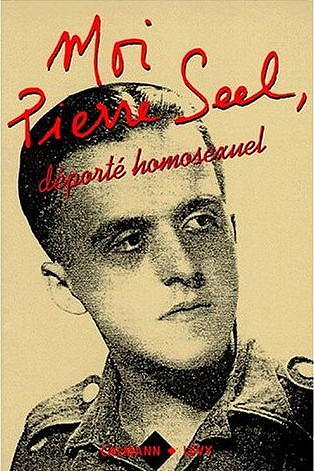 In 1994, Seel published the book Moi, Pierre Seel, déporté homosexuel (I, Pierre Seel, Deported Homosexual), written with the assistance of journalist and activist Jean Le Bitoux, founder of the long-running French gay periodical Gai Pied; the book subsequently appeared in translation in English, German and Spanish. Seel appeared on national television and in the national press in France. His story also was featured in a 2000 documentary film on the Nazi persecution of homosexuals, Paragraph 175, directed by San Francisco filmmakers Rob Epstein and Jeffrey Friedman. Returning to Germany for the first time since the war, Seel received a five-minute standing ovation at the documentary's premiere at the Berlin film festival. Seel also found himself under attack in the 1980s and 1990s, even receiving death threats. After he appeared on French television, he was attacked and beaten by young men shouting homophobic epithets. Catherine Trautmann, then the Mayor of Strasbourg and later a Socialist Party culture minister, once refused to shake his hand during a commemorative ceremony. In 2003, Seel received official recognition as a victim of the Holocaust by the International Organization for Migration's program for aiding Nazi victims. In April 2005, President Jacques Chirac, during the "Journée nationale du souvenir des victimes et des héros de la déportation" (the French equivalent to the Holocaust Memorial Day), said: "In Germany, but also on French territory, men and women whose personal lives were set aside, I am thinking of homosexuals, were hunted, arrested and deported." On 23 February 2008, the municipality of Toulouse renamed a street in the city in honour of Seel. The name plaque reads "Rue Pierre Seel - Déporté français pour homosexualité - 1923-2005".
1929 – Maurice Kenny combines a gay and Native American consciousness to create poetry that is located in multiple cultures. Kenny was born in upstate New York, his father a Mohawk Indian and his mother part Seneca. At the age of nine, when his parents separated, he went to live with his mother in New York City. After a flirtation with juvenile delinquency, Kenny returned to upstate New York to live with his father. As a result, Kenny identifies most strongly with his father's Mohawk heritage. Kenny began writing poetry as a teenager. At seventeen, he discovered Walt Whitman and was deeply drawn to his natural language and rhythm, qualities Kenny later discovered in Native oral traditions. Kenny attended Butler University in Indiana and St. Lawrence University in New York, and he studied with Louise Bogan at New York University. He was twenty-eight when he issued his first poetry collection and did not publish again until he settled in Brooklyn in 1967. Kenny credits his poem "First Rule," written in the late 1960s, with leading him back to the oral traditions of his Native heritage. The incantatory quality of his poems have led some to describe them as "chants." Kenny prefers to call his works "pieces," reserving the term chant for works of a more ritual nature, in which "I mean certain things to take place in your heads." Two collections, North: Poems of Home (1977) and Dancing Back Strong the Nation (1979), reflect Kenny's consciousness of his Native cultural heritage. In 1976, Kenny claimed his gay identity with the publication of "Tinselled Bucks: An Historical Study in Indian Homosexuality" and the poem "Winkte" in Gay Sunshine. Drawing on diverse sources, Kenny boldly reclaimed native two-spirit traditions for contemporary gay Indians. A common trait of Kenny's characters, and of Kenny's own persona, is that they are multiply located. They are figures who cross (and often transgress) boundaries between cultures and ways of being: Indians in a white world, gay men in a heterosexual world, missionaries among Indians, and Indian women married to white men. Kenny's identification with all these positions reflects his own complex history. The search for the historical voice of Native people led Kenny to reevaluate the legacy of Walt Whitman. In "Whitman's Indifference to Indians," Kenny criticizes the poet's silence concerning the policies of the U.S. government toward Indians, and he concludes, Kenny has published over twenty-five collections of poetry, fiction, and essays. His work has appeared in over forty-five anthologies, magazines, and journals in several languages, and radio and film productions. In the words of Joseph Bruchac, he ranks among "the four or five significant Native American poets." He currently lives in upstate New York, where he is poet-in-residence at North Country Community College at Saranac Lake and visiting professor at Paul Smith College.
Altman was a Fullbright scholar at Cornell University in the 1960s when he met and began working with leading gay activists in the United States. Returning to Australia in 1969, he taught politics at the University of Sydney, and in 1971, published his book Homosexual: oppression and liberation — considered an important intellectual contribution to the ideas that shaped gay liberation movements in the English-speaking world. Among his prophetic constructions were "the polymorphous whole" and his posing of the notion of "the end of the homosexual", in which the potential for both heterosexual and homosexual behaviour becomes a widespread cultural and psychological phenomenon. In 1997 Altman wrote an essay, "Global gaze/global gays", in which he proposes that there are cultural connections between homosexuals in different countries, and that there is a nascent global gay culture. In 2005, he also published Gore Vidal's America, a study, as the title suggests, of Gore Vidal and his writings on history, politics, sex, and religion. In 1985, Altman accepted an appointment at La Trobe University, where he later became professor of politics; he was appointed the Visiting Chair of Australian Studies at Harvard University from January 2005. Since 2009 Altman is the director of the Institute for Human Security at La Trobe University. Altman has delivered speeches on the topic of sexual liberation, one of his most known and appreciated speeches, Human beings can be much more than they have allowed themselves to be, was delivered at the first Gay Liberation Group meeting at the University of Sydney on 19 January 1972. In his preface to The city and the pillar, Gore Vidal writes that Altman brought the book back with him but it was seized at Sydney Airport and subsequently declared obscene by a judge who also observed that the law was "absurd", thus leading to its repeal some time later. Altman is also an active member of organisations that are dedicated to creating a better life for homosexuals, serving on the Australian National Council on AIDS and other international organisations including the AIDS Society of Asia and the Pacific, of which (as of the 2005 Kobe ICAAP Congress) he is president. Although strongly identified with gay rights, Altman contributes to more widely based organisations. In October 2006 he was elected to the board of Oxfam Australia. In 2010 he stepped down from this position.
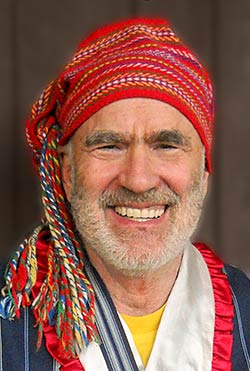
1943 – Murray Edelman, is a mathematician statistician, founder and central figure of the Chicago Gay Liberation group. Murray helped to bring the modern gay liberation movement to Chicago and did crucial work to develop a visible and militant LGBT activism during the early years of the movement in Chicago. While a graduate student at the University of Chicago, he was a founder and important figure of Chicago Gay Liberation, His work was central to developing a public, visible, and militant LGBT activism during the early years of the movement. In addition, he served for more than a decade as director of exit polling at Voter News Service, an organization employed by ABC, CBS, NBC, CNN and the Associated Press in national elections, where he was responsible for the groundbreaking effort to have gay, lesbian, and bisexual self-identification made part of electoral exit polling. His friendship with philosopher-activist Arthur Evans resulted in Edelman providing Evans the monies with which to publish his seminal work, Witchcraft and the Gay Counterculture. As a founder of the first Gay Liberation group in Chicago, which was initially based in Hyde Park, between 1969 and 1972 Edelman helped plan and participated in many early demonstrations and public activities, including pride rallies, media “zaps,” and public dances—the latter, in those years, a daring activity that risked police intervention. Perhaps his most significant contribution took place in 1971, when Edelman disrupted a taping of “The Howard Miller Show,” a local Chicago television talk show. Miller’s guest was the deeply homophobic, but best-selling, Dr. David R. Reuben, author of Everything You Always Wanted To Know About Sex (But Were Afraid To Ask), which had made headlines across the country. For helping to bring the modern Gay Liberation movement to Chicago and working to develop a visible and often militant political activism during the early years of the movement in Chicago as well as enhancing LGBT political visibility in recent years, Edelman has been selected for induction into the Chicago Gay and Lesbian Hall of Fame.
1945 – Neil Miller is an American journalist and nonfiction writer, best known for his books on LGBT history and culture. Miller was born in Kingston, New York, in 1945 and graduated from Kingston High School and Brown University. He lived in Israel from 1970 to 1972, studying at the Hebrew University and teaching English at an Israeli high school. Upon his return to the United States, Miller came out to his family. He says, "Living in Israel really forced me to come out. Israel was much less accepting of homosexuality in those days than it is today—everyone seemed to be pushing baby carriages and trying to get me, a nice Jewish boy from the U.S., to marry their daughters." Miller says his family was "relatively accepting" when he came out, but they were not thrilled that he was going to move to Boston to become the news editor (and later the features and managing editor) of Gay Community News in Boston, at the time the only gay and lesbian weekly newspaper in the country. He was the news editor of the Gay Community News from 1975 to 1978, Miller's most acclaimed book, In Search of Gay America, published in 1989, was the first book to examine gay and lesbian life outside the large metropolitan areas. Miller's subjects include the openly gay mayor of a small Missouri town, gay dairy farmers in Minnesota, a lesbian coal miner in West Virginia, and gay Native Americans in South Dakota. The book won a Lambda Literary Award in 1991 and was honored by the American Library Association. His second book, the ambitious Out in the World (1992), looked at gay and lesbian life in twelve countries around the world, including South Africa, Egypt, Thailand, Japan, Australia, and Denmark. His next book, Out of the Past, was an international survey of LGBT history beginning in 1869, the first time the word "homosexuality" appeared in print. First published in 1995, the book ranged in scope from the story of Plains Indians to the Nazi persecution of homosexuals to America in the age of AIDS. A revised, updated version appeared in 2006. His interest in gay history led him to write Sex-Crime Panic, an investigative account of the round-up and incarceration of 20 gay men in Sioux City, Iowa, during the McCarthy period. The round-up followed the brutal, unsolved murders of two small children. Although the men were never linked to the crimes in any way, they were labeled as "sexual psychopaths" and incarcerated in a locked ward of a state mental hospital until they were deemed "cured." Sex-Crime Panic received a Lambda Literary Award in 2002, as well as the Randy Shilts Award for Gay Nonfiction from the Publishing Triangle. The story was almost completely unknown until Miller discovered it, tracking down participants and victims in detective-like fashion.
1946 – Robert Amsel, born in Albany, New York, is mainly known for his work in the Mattachine Society, a gay civil rights organization, prominent in New York City throughout the 1960s. While attending Syracuse University between 1964 and 1968 (from which he obtained a Bachelor of Fine Arts degree), he came out into gay life. During the summer of 1967, while staying with his sister in New York, he volunteered at the Mattachine Society. As a result, he met Dick Leitsch, then president of the group. The two soon became partners. Madolin Cervantes, a heterosexual woman who devoted her life to homosexual equality and was an officer of the society, had a large, rent-controlled apartment on West End Avenue, where the couple lived for another year, upon Amsel’s graduation from Syracuse University. (During Amsel’s senior year, Leitsch had shared an apartment with Amsel in Syracuse but traveled back and forth between Syracuse and New York.) According to Amsel, "Our phones in Madolin's pension, as we called it, were tapped, presumably by the F.B.I., who regarded folks seeking gay equality as a subversive group. In those days, tapping was primitive and reel-to-reel tape recorders were used to record private conversations. Frequently, the tape would run out and one could actually hear the spinning of the tape reels. When you know you're being taped, you might as well have fun with it. For this reason, I would have outrageous conversations in which I provided blow-by-blow descriptions of wild sexual escapades with prominent political foes of the era. If possible, we never said anything over the phone lines that was true." At the time of the Stonewall riots, Dick Leitsch had been upgraded to executive director of Mattachine and Amsel was its president. Amsel would later write a cover article for the September 15, 1987, edition of The Advocate. The article, cumbersomely titled by the magazine as "Back to Our Future? A Walk on the Wild Side of Stonewall", was written by Amsel to "set the record straight – or gaily forward." Over the 18 years since the riots had occurred, they had evolved more into myth than fact and all the previous work of fighting for gay equality had been forgotten. Additionally, Amsel strove to unite gay people in their then current fight against a callous Administration in Washington regarding the AIDS epidemic. During this period, Amsel volunteered as a "buddy" to AIDS victims.In the early 1970s, both Amsel and Leitsch, now living on West 72nd Street, had both dropped out of Mattachine, which, as a group, was on its last gasp. Other newer gay groups supplanted it. During this period, the two lovers were the subject of a documentary for the Canadian Broadcasting Corporation (CBC) on "happy homosexuals," a term considered an oxymoron by many in the psychiatric community. Although Amsel played second-fiddle to his older lover, several of his own contributions to the gay movement included setting up a Mattachine Society branch in Syracuse, New York, which ultimately died out but was supplanted by newer organizations. He also was one of a group of four Mattachine workers who started the now-common practice of surveying political candidates for office on gay rights issues. In 1978, the faltering relationship of Amsel and Leitsch ended when Amsel moved to London for several years. Amsel returned to New York in the summer of 1981 but ultimately moved to Harrisburg, Pennsylvania, where he purchased a house, which he renovated. Continuing his education, he also received his Masters Degree in American Studies from Penn State - Harrisburg. In recent years, he has authored two supernatural novels, Manhattan Pharaoh (2004) and Devil Goddess (2006). Although not gay novels per se, both books have prominent homosexual characters, as might be expected. On a personal level, he continues to fight against homophobic bigotry currently found in politics and religion.
1946 – David Mixner is a civil rights activist and best-selling author. He is best known for his work in anti-war and gay rights advocacy. David Benjamin Mixner was born in southern New Jersey. His father worked on a corporate farm, and his motherworked shifts at a local glass factory and later took a job as a bookkeeper for the local John Deere dealership. David has two older siblings. During high school, he got involved in the Civil Rights movement, by participating in picketing and sending his own money to Martin Luther King, Jr. In his bestselling memoir, Stranger Among Friends, Mixner explains that his parents were “livid” over his involvement in the Civil Rights movement, claiming his activism embarrassed them. When Mixner told them he wanted to go south during the summer of 1963 after following the events in Birmingham, Alabama, his parents forbade him. In the fall of 1964, Mixner enrolled at Arizona State University, where he soon became heavily involved in civil rights and anti-war activism. Prompted by an article he read in The Arizona Republic about city garbage workers who were seeking the right to unionize, Mixner organized from start to finish the first of many protests he would organize over the next thirty years. Mixner rallied hundreds of workers, students and professors and led a march on City Hall. Although the city successfully broke the strike, the workers eventually earned the right to unionize. Mixner also experienced his first same-sex relationship at ASU, with a man whom he refers to as Kit in his memoirs. A year into their relationship, Kit was killed in an automobile accident. Mixner did not attend the funeral, and Kit’s parents never discovered that their son was gay. Soon after Kit’s death, Mixner decided to transfer to the University of Maryland in order to be closer to Washington, D.C., where he would be able to get more involved in anti-war protests. Mixner found himself much more interested in activism than in pursuing a college degree. While at Maryland, Mixner was a grassroots organizer for the 1967 march on the Pentagon, which was later captured in Norman Mailer’s Armies of the Night. Later that year, Mixner dropped out of college and began working for the presidential campaign of Eugene McCarthy. At the 1968 Democratic National Convention in Chicago, Mixner was beaten by police during the protests held outside the convention center. Mixner began seeking out new outlets for his activism. He soon befriended Doris Kearns Goodwin, who introduced Mixner to Senator Ted Kennedy, who would become a lifelong friend. Mixner’s most significant contribution to the anti-Vietnam War effort was his role as one of the head organizers of the Moratorium to End the War in Vietnam. The idea was prompted by Jerome Grossman, a Massachusetts businessman active in the peace movement. Grossman proposed to Sam Brown, a close friend of Mixner, that they set aside a day in 1969 where “business as usual” would come to a halt, essentially engaging in a strike against everything. Brown decided that the word “moratorium” would be less threatening than “strike” to middle-class Americans, and set to work, setting aside October 15, 1969 as the day of the moratorium. Brown soon enlisted the help of Mixner, David Hawk, another young activist, and Marge Sklencar, who they knew from the McCarthy campaign. Brown, Mixner, Hawk and Sklencar then set about organizing the event. The Moratorium drew millions of people throughout the country, who gathered in public places and read the names of the soldiers killed in Vietnam aloud. The day was capped off by a march at the Washington Monument, where Coretta Scott King, the widow of Martin Luther King, Jr., spoke about her late husband’s passion for ending the war. In 1976, Mixner began the process of coming out of the closet, and soon thereafter was a founding member of the Municipal Elections Committee of Los Angeles (MECLA), the nation’s first gay and lesbian Political Action Committee. At the time, very few candidates were willing to accept donations from openly gay individuals or gay-affiliated organizations. At the time, Mixner was also serving as the campaign manager for Tom Bradley, the mayor of Los Angeles who was seeking reelection, so while he worked to raise funds for MECLA, his involvement was kept secret because of the potential for his sexuality to become an issue in Bradley’s campaign. Soon after Bradley won reelection easily, Mixner turned his focus to fighting Proposition 6, an initiative placed on the California ballot by Orange County State Senator John Briggs that would make it illegal for gays and lesbians to be schoolteachers. Similar initiatives had recently passed throughout the country when Mixner turned his focus to fighting Proposition 6, creating the “NO on 6” organization to fight it; through the process, he would publicly come out of the closet. Mixner and his lover Peter Scott secured a meeting with then-Governor Ronald Reagan, whom they convinced to oppose the initiative publicly. As a result, and through the work of Mixner, Scott, legendary gay rights activist and San Francisco City Councilman Harvey Milk, and others, Proposition 6 was defeated by over a million votes, the first ballot initiative of its sort to be shot down. As a result of this huge success, Mixner and Scott experienced a huge upturn in business for their fledgling political consulting firm, Mixner/Scott, and were asked by Bill Clinton, then running for governor of Arkansas, to host a reception for Clinton at their Los Angeles home. Shortly after Mixner experienced professional success in 1985, helping defeat Proposition 64, a ballot initiative proposed by Lyndon LaRouche that would require quarantining people with AIDS, Mixner learned that his long-time lover and business partner, Peter Scott, had AIDS. Scott would fight the disease for four years; he died on May 13, 1989. While Scott fought the disease, Mixner formed an organization that spearheaded legislation that would create a California alternative to the FDA, enabling California to deal more aggressively with the AIDS epidemic than the federal government. Mixner’s group enlisted the support of California Attorney General John Van de Kamp, then convinced Governor George Deukmejian to sign AB 1952, which, as described by van de Kamp, “mandates the director of DHS to implement the drug testing and sale authority that he had under existing law, for the purpose of approving the testing and sale either of an AIDS vaccine, or of new drugs that offer a reasonable possibility of treating people who have been infected with the AIDS virus.” After Bill Clinton promised Mixner that he would support both an end to the ban on gays in the military and increased funds to find a cure for AIDS, Mixner began raising money for Clinton enthusiastically. Mickey Kantor, Clinton’s campaign chairman, soon asked Mixner to join the National Executive Committee of the Clinton for President campaign, the first openly gay person to become a public face of a presidential campaign. Although he spoke at an event at the inaugural ball, introduced by his old friend Ted Kennedy, Mixner soon thrust himself in the middle of the furor over the “Don’t Ask, Don’t Tell” policy proposed by Clinton, which represented a total betrayal to Mixner and many in the gay community. When Mixner went on Nightline to complain about Clinton’s rapid shift away from allowing gays and lesbians to serve openly in the military, his calls to the White House stopped being returned and his consulting business began to tank, as he was no longer perceived as someone who had influence with the new administration. Shortly thereafter, Mixner participated in a march in Washington for the Campaign for Military Service, which advocated lifting the bans on gays in the military. When Clinton announced the “Don’t Ask, Don’t Tell” policy on July 19, 1993, Mixner organized a march with CMS and was very publicly arrested outside the White House, for which he received a great deal of publicity because of his personal relationship with Clinton.[12] Mixner and Clinton later healed the rift, but Clinton never again revisited the policy during his presidency. In October 2008, Prime Minister Gordon Brown and his wife Sarah Brown honored Mixner with a luncheon at 10 Downing Street. The luncheon in Mixner's honor represented the first time a British Prime Minister honored an LGBT activist in this manor. In May 2009, Mixner used his blog to call for a March on Washington to protest the LGBT community's lack of equal rights. Cleve Jones, spurred by Mixner's call to march, led the organizational efforts for the National Equality March, scheduled for October 10–11, 2009. Mixner and Jones were both featured speakers at the rally in front of the Capitol after the March. Over 200,000 people marched on Washington on October 11, 2009.
1954 – Benjamin Alire Sáenz is an American poet, novelist and writer of children's books. He was born at Old Picacho in Doña Ana County, New Mexico, the fourth of seven children, and was raised on a small farm near Mesilla, New Mexico. After high school, he entered St. Thomas Seminary in Denver, Colorado, where he received a BA degree in humanities and philosophy in 1977. He studied theology at the University of Louvain in Belgium from 1977 to 1981. He was a priest for a few years in El Paso, Texas before leaving the order. In 1985, he returned to school, and studied English and creative writing at the University of Texas at El Paso where he earned an MA degree in creative writing. While at Stanford University, he completed his first book of poems, Calendar of Dust, which won an American Book Award in 1992. Before completing his PhD, he moved back to the border and began teaching at the University of Texas at El Paso. His first novel, Carry Me Like Water was a saga that brought together the Victorian novel and the Latin American tradition of magic realism, and received much critical attention. Sáenz came out as gay in the late 2000s, at age 54. He has acknowledged in interviews that he had difficulty coming to terms with his sexuality due to having been sexually abused as a child, and that he began to explore LGBT themes in his writing in part as a way to help himself work through his own issues with being gay. He won the PEN/Faulkner Award for Fiction in 2013 for Everything Begins and Ends at the Kentucky Club, the first Latino writer ever to win the award. He also won two awards at the 2013 Lambda Literary Awards, in the categories of Gay Male Fiction for Everything Begins and Ends at the Kentucky Club and Children’s/Young Adult for Aristotle and Dante Discover the Secrets of the Universe.
1965 – Ivan Scalfarotto is an Italian politician and activist, committed to LGBT rights. A member of the Italian Parliament, he is a Deputy Minister at the Italian Ministry of Interior. Previously a Deputy Minister at the Ministry of Constitutional Reforms (2014-2016), the Ministry of Economic development (2016-2018) where he was in charge of international trade, and the Ministry of Foreign Affairs and International Cooperation (2019-2021), in 2005 Scalfarotto ran to the become the national leader of "The Union", the center-left coalition, in the primary elections that were held to identify their candidate to lead the Italian Government. Between 2009 and 2013 he was a Deputy Chairperson of the Democratic Party. In the 2013 and 2018 general elections he was elected to the Italian Parliament (Chamber of Deputies). In September 2019 he abandoned the Democratic Party to join Italia Viva, former PM Matteo Renzi's newly created political movement. From 7 November 2009 while he was the Vice President of the Assembly of the Democratic Party, his platform included the extension of marriage to same-sex couples, and a stronger fight against homophobia. Openly gay, he is a supporter of the introduction of same sex marriage and the possibility of allowing for adoption of children by homosexual couples. On May 20, 2017, in Milan, at the Palazzo Reale, Scalfarotto – the first member of an Italian government to do so - entered into a civil union with his partner Federico Lazzarovich.
1968 – Wolfgang Tillmans is a photographer. He has worked for fashion and style magazines as well as showing his work in art galleries. Born in Remscheid in Germany, Tillmans lived and worked in Hamburg at the end of the 1980s before moving to England. He took a course on photography at Bournemouth and Poole College of Art from 1990 to 1992, and then moved to London. He has subsequently been based in New York, Berlin, and London again. Even before he moved to England, Tillmans was working for British fashion and style magazines. His work for them was apparently more spontaneous than most magazine photography, often seeming to catch fleeting moments. He typically photographed young people, sometimes clubbers or part of the gay scene, sometimes homeless. His work has often been compared to Nan Goldin who from around the 1980s documented Manhattan's Lower East Side in New York City in a similar snapshot aesthetic way. His initial work led to some degree of fame in the business, and within a couple of years he was photographing people like Moby and Blur's vocalist Damon Albarn in a similar spontaneous style.Tillmans has become one of the most prominent and influential photographers to emerge during the 1990s. He profiles the lifestyles of his immediate circle of friends, working collaboratively with his subjects so that they lose their inhibitions in front of the camera. Tillmans produces raw, confessional images yet stays within the traditional genres of portraiture, landscape and still-life. His ability to produce powerful and sometimes shocking images has brought him success in art galleries and mainstream media alike. As well as his work being shown in a range of places, both fashion magazines and galleries, Tillmans' work also show a wide range of subject matter. Apart from innocent, and what may be seen by many as rather banal, pictures of fruit or a pair of jeans over a bannister, he has photographed nudes and masturbating men. The kind of prints he exhibits also vary - inkjet prints are shown alongside expensive glossy shots and images taken from magazines.  "Naturists" Tillmans' representations of gay men are an important aspect of his art. While his representations of gay men are more abstracted than the sexualised images of Robert Mapplethorpe, Tillmans presents each of his subjects, including gay men, directly, avoiding the subtle homoeroticism of such fashion photographers as Bruce Weber or Herb Ritts, for example. 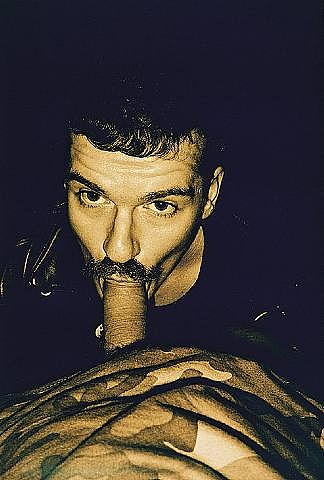 "Stiefelknecht II" Tillmans won the Turner Prize in 2000. In 2001, Tillmans was awarded first prize in the competition for the design of the AIDS-Memorial for the City of Munich, after which the memorial was erected using his designs at the Sendlinger Tor. In He has released a book, Burg. His work has been featured in Arto Lindsay's The Subtle Body in 1995. The same year, his photographs were published in a Taschen book Wolfgang Tillmans (with a preface by Simon Watney). In 2011, Tillmans traveled to Haiti with the charity Christian Aid to document reconstruction work after the country's devastating earthquake one year before.
1969 – New York City’s Gay Liberation Front sponsored the first "Coming Out" dance at Alternate U. to give gays and lesbians the opportunity to support their own organizations rather than what they said were mafia-owned bars. Alternate U was a free counterculture school and leftist political organizing center in Greenwich Village, for many of its activities through 1970. Founded around 1966 by Tom Wodetski. It had several classrooms in a former dance studio on the second floor of 69 West 14th Street, at the corner of Sixth Avenue.
Irtyshov grew up in a dysfunctional family, with both his mother and father being alcoholics. When he was 10 he got into a car accident and got a serious craniocerebral injury as a result. He did not fully recover: he was diagnosed with "an intellectual disability", so his mother sent him to a special boarding school, at which Irtyshov was raped. After the boarding school he graduated from a vocational school. In 1993 he moved to St. Petersburg, where he got a job as a dishwasher at gay coffeehouse, but his main source of income was homosexual prostitution. He was raped several times by his customers. Igor did not consider himself a homosexual, as he also had sex with women. Irtyshov began his crimes in December 1993. While walking through Sosnovsky Park, he noticed two brothers, 11 and 12 years old respectively. Threatening them with a knife, the criminal took the children to a quiet, secluded place where he raped them, forcing them to drink something from a jar beforehand. Both victims received serious bodily injuries. The next attack occurred in the Kolpinsky District. While violently abusing a boy, Irtyshov squeezed his throat too much, causing him to die from suffocation. After this, an active search was conducted to catch the serial rapist. The next child Irtyshov raped was in May 1994. He dragged a 10-year-old boy into the attic of a house along the Riga Avenue and brutally raped him. After the act of violence, Irtyshov broke the boy's hands, leaving him permanently disabled. It is noteworthy that all the attacks were committed in the daytime, approximately between 12 and 18 hours, but the perpetrator managed to escape unnoticed. A month later he raped two more boys, 11 and 12 years old, on the banks of the Neva River. The seventh victim of the pedophile was a 15-year-old teenager, whom the criminal attacked in an elevator. However, the boy managed to fight back and escaped. On the same day, Irtyshov, who was angry because of his failure, committed his eighth, and final, crime. After brutally raping a 9-year-old boy, he left the crime scene. The boy miraculously survived and was able to give a detailed description of the criminal. The boy was sent to a hospital in the United States, with pleas for financial help for the necessary operation, but although the necessary intestines were collected for an organ transplant, the boy died. On the streets and in the newspapers, the rapist's facial composite and his verbal description were distributed. Irtyshov was frightened: the composite was very accurate, which forced him to fly to Murmansk. A month later, having decided that everything had quieted down, Igor returned to St. Petersburg, where on November 28, 1994, he was detained by law enforcement agencies. Irtyshov was turned in by one of his own male lovers. After the last rape, Irtyshov brought the boy's briefcase home and boasted about it to his roommate. He suspected something was amiss and reported Igor to the police. Soon Irtyshov was captured, and later many victims identified him. The courts found Igor guilty of several crimes, including murder, rape, and serious bodily harm. He was sentenced to death. In 1999, he, like all other condemned criminals at the time, was given life imprisonment by presidential decree.
1991 – on this date James Florio, the Democratic governor of the U.S. state of New Jersey, issued an executive order prohibiting sexual orientation discrimination in the public sector.
2013 – Darren Young, professional wrestler with the WWE announced he is gay. Young, a professional wrestler since 2002, with the WWE since 2005, is the first WWE star to openly say he is gay. When TMZ asked him whether he thought a gay athlete could succeed in the WWE, he replied, "Absolutely. Look at me. I'm a WWE superstar and, to be honest with you, I'll tell you right now, I'm gay, and I'm happy. Very happy."
|
